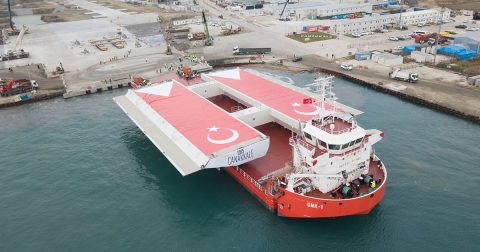
Is Turkiye a project cargo hub of the future?
Customers are constantly rethinking their supply chain, Jeroen De Ryck, global business unit manager, projects & machinery at Ahlers told Project Cargo Journal in May this year. One of the changes him and his colleagues could notice is the emergence of Turkiye as an important manufacturing and distribution hub.
Speaking during the Project Cargo Summit, De Ryck, added that Turkiye has a very young, entrepreneurial population, with the capacity to invest and carve a spot in the market as a reliable supplier for projects being developed across the globe.
Joining De Ryck for a discussion called “Turkey as a new production and export hub”, was Yusuf Yusufoğlu, Senior Trade Manager – MPP Service at Breadbox Shipping Lines, added that Turkiye has traditionally had a strong manufacturing industry, and over the recent years has been investing a lot to increase its manufacturing capacity.
Speaking of the drivers behind Turkiye’s emergence as a major hub for project cargo movement, Yusufoğlu added that relatively cost-efficient labor and manufacturing expenses are enabling the country to grab a larger market share. “They also have a geographical advantage which is in close proximity to Europe, as well as Asia, so they are quite lucky in that sense and can be quite important to both sides,” he added.
Timely investment
According to an ITA report, manufacturing’s share of GDP in has increased to 18.83 percent in the last decade and Turkiye aims to boost it to 21 percent by 2023 through its 2023 Industry and Technology Strategy.
In 2019, the Ministry of Science, Industry and Technology announced Turkey’s 2023 Industry and Technology Strategy detailing incentives for R&D and digital transformation of industrial enterprises. Turkey plans to invest heavily in over 300 product groups in the machinery, semiconductor, aerospace, defence, transportation technology, software, electronics, chemistry, and pharmaceutical industries, International Trade Administration’s report reads.
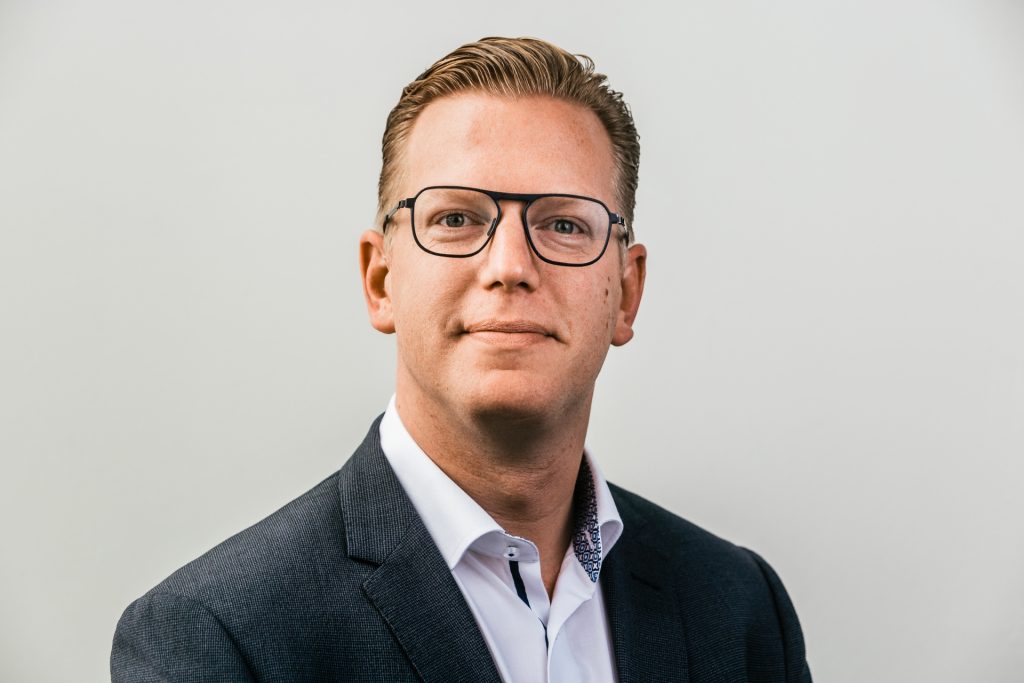
With government backing, Turkiye’s businesses are able to secure a significant spot in the supply chains for many regions, due to the increase in capacity and the geographical position. De Ryck notes that Turkiye’s intention was not to take market share away from the likes of China, but rather to provide a different option for project developers that have been constantly changing the way they source materials and components for their projects.
“A lot of companies have completely been rethinking their entire supply chain, and they do not want to depend only on one country or a supplier as such, so they want to diversify and reassure, make the production more localised, closer to the end-user, and Turkey becomes a very important player in that,: he stressed, adding that it is not only the proximity or the pricing, but the certainty which the localised production brings.
Turkiye pouncing on the opportunities
During the Covid-19 crisis, Turkiye was able to assure project cargo movement, however, as the war in Ukraine broke out it pounced on the opportunity to increase its steel products exports as Ukraine’s capacity was obliterated.
“Turkiye acted in a rather opportunistic way, to catch the latest change in trend, and actually the opportunity came up when the Ukraine-Russia conflict started. It is of course important to have that capacity ready to fill in, and Turkiye did a good job coming into the picture once that happened, especially when we look at steel exports. Ukraine did have a considerably large production capacity of steel, which have been put out of use now, and there was obviously a void left in the market, that has seen other countries jump to fill and Turkey has been one of the main ones in doing so,” said Yusufoğlu.
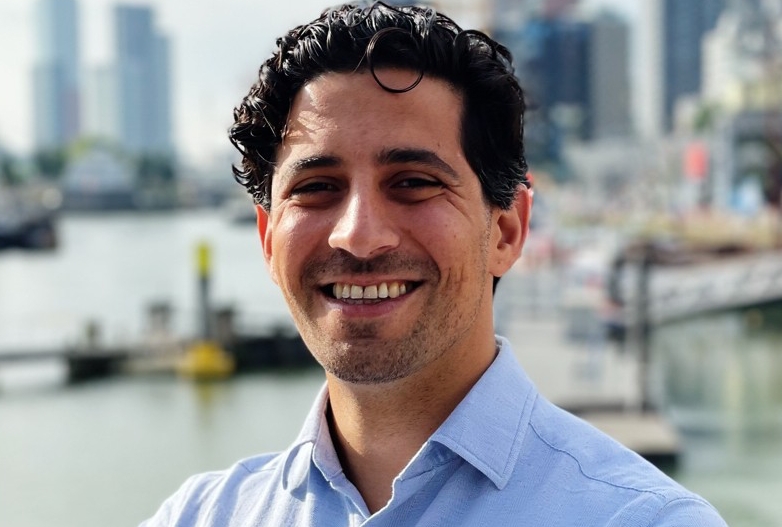
It is not only the manufacturing capacity but also the transit route between Europe and the East as transports through Russia hit a road block.
“There are very ambitious plans by the government to reinvest in infrastructure. They are building a new canal next to the Bosphorus, they have big plans for rail development, that will only help,” added De Ryck.
Ahlers and Breadbox in Turkiye
Both companies have already been quite involved in Turkiye over the recent years, Breadbox is running a liner service from Turkiye to West Africa on a monthly basis while Ahlers has seen an increase in requests involving Turkiye.
Over the last year, Ahlers has been involved in a number of large EPC projects, steel plant revamping projects an industrial projects that will see Turkiye’s production capacity increase even further.
“For us it is a three-way. It is an importing country for EPC projects, as Turkiye aims to increase its manufacturing capacity. The second point is the export of goods itself and the third is the transit of goods into Central Asia, the Middle East, and it is very important for us in all three aspects,” says De Ryck.
Asked whether Ahlers could consider opening its office in the country, he said that being CIS focused company Ahlers is in a different position to the number of other freight forwarders rushing into Turkiye. However, he did add that the company is looking into geographical diversification with Turkiye being high on the agenda.
From Breadbox’ perspective, Yusufoğlu notes that right now it is in a similar position to Ahlers, as the company does not have its own representation in Turkey. “Seeing how fast this is developing and looking at Turkish culture in doing business, it is important to be present on the scene and keep an ear on the ground, so I do believe that in the near future it [an office in Turkiye] is a serious consideration for our company,” said Yusufoğlu.
He further noted that in the near future the company could possibly deploy a second vessel on a monthly basis due to the area’s high prospects.
What could hamper Turkiye’s growth
“To be very frank, the only think that could stop Turkiye is Turkiye itself,” says De Ryck. He sees the country’s monetary problem as one of the reasons why the country couldn’t reach this position even ten years ago. He expects the entrepreneurship within Turkiye to accelerate even further due to the current circumstances with the repositioning of sourcing and procurement of certain items.
“I believe there is also a certain focus being put from the government to foster exports, to bring in foreign currency. The currency of a country is an important indicator and tool, unfortunately the Turkish lira has lost a lot of its value in the last year. So they do need the foreign currency, they are actively going after it, and that is why exports are becoming increasingly important for Turkey, and a key aspect of their economy,” added Yusufoğlu.
Further on, the government is fostering the adoption of advanced manufacturing technologies within the consumer goods, electronics, chemicals, machinery, steel, construction, textiles, energy, and mining industries to remain competitive.
Currently, 36 percent of Turkey’s manufacturing exports consist of medium-tech products and 3 percent consist of high-tech products. Turkey aims to increase the former to 44 percent and the latter to nearly 6 percent by 2023, ITA report reads.
The administration says that over the next decade, Turkey is expected to invest between $1 to $1.5 billion, annually, to integrate industry 4.0 solutions into the manufacturing process.
Further on, Turkiye is leveraging its political ties with West African countries to secure projects for its companies, although their approach might be a bit different to that of the likes of China. While China invested in projects in order to secure raw materials out of the African continent, Turkiye’s companies have built a certain know-how over the year that they are now exporting to West African countries though civil and construction projects they are involved in like the new airport in Dakar, conference centres, stadiums, according to Yusufoğlu.
It is fair to say that Turkiye has carved out a significant position in the projects supply chain and is pushing forward with developing all its capacities, to better serve as a transit, import or export hub.
You just read one of our premium articles free of charge
Register now to keep reading premium articles.


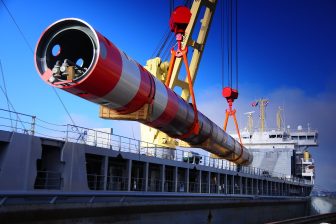
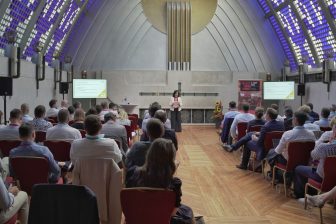
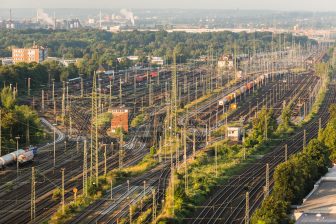
The currently requested is low risk (high qual. )supply chains, simple as that…
Accordingly, now, redundant, resilent and robust transport devices, handsomely are rewarded, by willingly paying clients – and vice versa…
Now urgently Advantage of Hemisphere, flora of nearby ports, has too be benefitted of!
(A pity it is that railways, the large scale, on shore port feeding device is stuck at standards optimal, when steam was shifted out…)